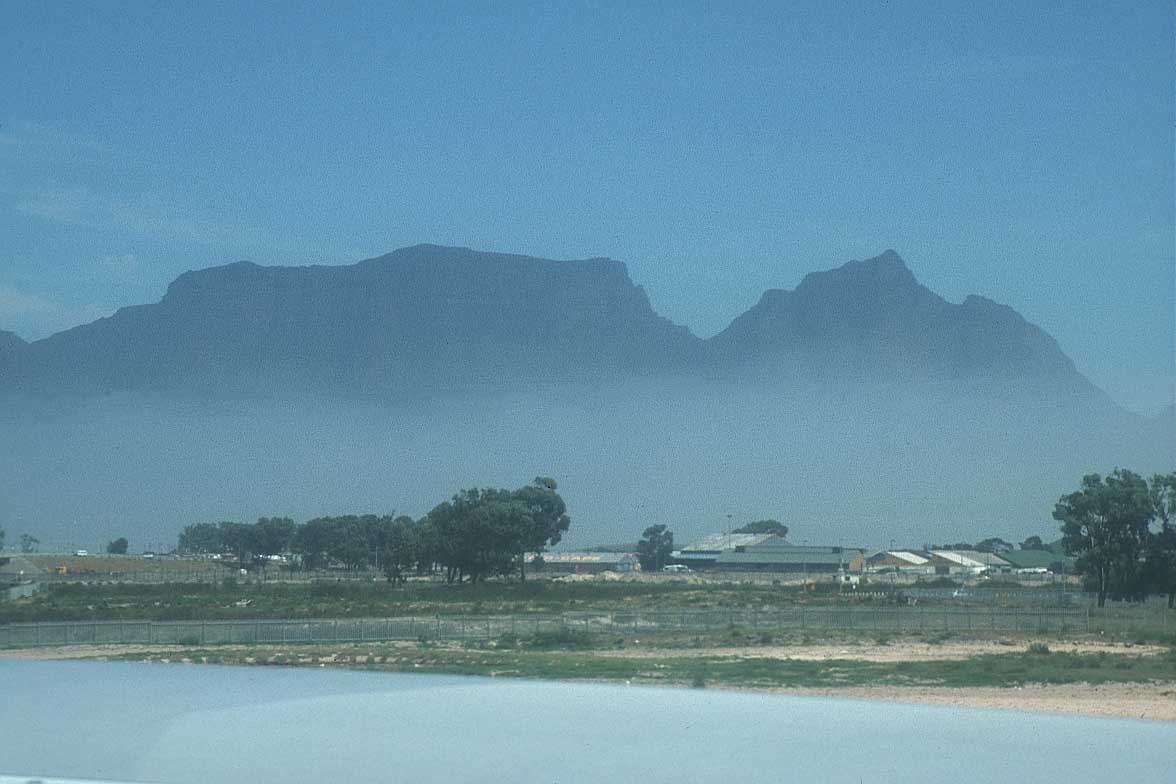|




The Venue
White Lodge Hotel Evergreen Lane,
Constantia, Cape Town
Tel 021 794 2951
http://www.whitelodge.co.za/

 |
Index | Syllabus
| Fees & Registration | Presenters
| Guinea Pigs wanted
Learning Syllabus
Syllabus structure
Training is based on an accelerated experiential ‘self discovery‘ model with short breaks and emphasis on rigorous, maximised work time; delegates commence practice coaching within 2 hours of arrival; the syllabus has a unique ‘jigsaw’ format to prioritise on triad/pairs coaching practice sessions supervised by trained facilitators, and feedback forums, to integrate with the availability of international tutors brought into South Africa for the event. During the 10 day programme, delegates will become familiar with over 100 concepts, tools and techniques, coordinated from the research of acknowledged experts in the world coaching arena. The Syllabus is largely accurate but content, topics and sequencing will vary to match delegate progress and identified needs. Two extensive Manuals containing all Presentations, Checklists, Case histories Tools and academic referencing papers etc are provided for each full delegate’s use and retention
‘As two delegates from Southern Africa, we experienced the CEO programme in England in 2007. We had the best presenters, often the authors of the critical books; they lead the world in Coaching. Now these individuals are to be in South Africa; don't miss them!’
John Osterberg Food services CEO, and Lance Reynolds Leisure CEO
Programme Leader: John Webster.
Tutors: Myles Downey, Ron Hyams, John Paisley, Dr Paddy
Paisley, Derek Wilson
Facilitators: Neslyn Watson Druee, John Osterberg, Lance
Reynolds
Day 1 Saturday August 10 2008
0900 to 1730
Tutor John Webster
Content. Programme objectives overview. Pairs/Triad
coaching structure
Introduction to historical psychological concepts and principles - Freud,
Rogers, Maslow, Erikson, Berne TA, Skinner, CBT, Psychosynthesis, to modern
authors, Bandler NLP, Whitmore, Downey, Charvet and Kline.
Questioning/listening/rapport. How the mind processes; the Conscious and
Unconscious mind, beliefs and behaviours. Millers 7 – 9 rule. Discomfort of
change. Imprinting change
The CEO coaching process and typical session structure
Wheel of life. Triad coaching practice and forum feedback
Day 2. Sunday August 11 0830 to 1800
Tutors. Ron Hyams, John Webster
Content.
John Webster . The SOC and SACAP certification and award process. The Chester University Registration Process for award of a Post Graduate Certificate in Executive Coaching
Ron Hyams. 2007 Programme Graduate. The power of the programme content. Tips on completion of the Chester University 4 Paper Portfolio and Award process
John Webster. Coaching at MD Level. Session 1 Coaching Checklist introduction. Key coaching principles.
Elements of the coaching relationship. Twin’ coaching model. The coach’s role and positioning. The thinking process, habit patterns, beliefs. Suspending Solutions, judgements; responsibility. Importance of Sensory acuity/rapport. Linguistics, Echoing/interpretation. Ask not tell. Drill to fundamentals. Skilled questioning, listening. Use of silence. Options and choices. Action planning. Wheel of Life
Case history session in work groups
Triad coaching practice and forum feedback
Day 3 Monday August 12 0830 to 2000
KEYNOTE DAY open to full programme delegates and day delegates
Tutor Myles Downey
0830 to 1730
The School of Coaching Model concepts from Myles international book in 5 languages, ‘Effective Coaching’ Overview of The place of Coaching in the leader’s role. Non directive group coaching (the GROW model and Following Interest) masterclass and demonstration: The notion of Presence and Flow in Coaching. How Mental State effects performance (Self One and Self Two); How to coach when you don’t know the content/techniques; Coaching demonstration and practice
Day 4. Tuesday August 13 0830 to 1800
Tutors Myles Downey
0830-1730
On site demonstration of content free coaching at a golf range.
Detailed examination and delegate practice sessions for GROW model, Self One and Two and the sub text of the content free process.
Day 5. Wednesday August 14 0830 to 1800
Tutors John Paisley, Neslyn Watson Druee and John Webster
The Evolution of Coaching from Psychology and Psychotherapy.
Ethics, Relationships and Boundaries. Coaching Tools from Psychology and NLP.
Rapport and matching. Personal/Business Profiles. Values. Beliefs, Perceptual
Positions, Charvet towards/away motivation.
Triad coaching practice and forum feedback
Group Forum facilitated by Neslyn Watson Druee.
‘Integration of coaching concepts and development of your personal coaching
model’
Day 6 Thursday August 15 0830 to 1800
Tutor John Webster
Content.
How the Mind operates through the 5 senses. Sensory preferencing of input/processing. Millers 7-9 rule. Unconscious processing systems, beliefs and behaviours. Generalisms, deletions, distortions, précis language, limiting beliefs, blindspots. Coach work at unconscious level.
The coach’s process through client led change.
Triad coaching practice and forum feedback
Day 7 Friday August 16 2008 0830 to 1800
Tutor . Dr Paddy Paisley.
Content . The Integral Coaching Model.
Tutor John Webster .
Content. Coaching tools from Psychology and NLP. The CEO Personality Assessment Form (PAF), Transactional Analysis (TA) and psychometrics; their place in coaching. Life Patterns, Inner Voice, Visualisation, State change, Anchoring, Perceptual Positions, Know How, Timelines. Advanced linguistics and Eriksonian hypnotic language
Triad coaching practice and forum feedback
Day 8 Saturday August 17 2008 0830 to 1800
Tutors John Webster, Derek Wilson
Content.
John Webster. Submission Procedures for awards by SACAP and Chester University. Guinea Pig coaching format. Portfolio structure content, supervision and guidance.
John Webster. The CEO Checklist based Executive Coaching Toolkit. Career coaching model and Checklist. CV creation and skills development planning in a coaching structure. Personal financial planning and network management model and Checklists in a coaching structure. Case history group session. Masterclass performance coaching model with Checklist for Profit & Loss improvement at senior board level
Derek Wilson. Set up and marketing of a coaching business. Typical incomes and timescales
Triad coaching practice, team working and forum feedback
Learning outcomes
Delegates will progressively be
- familiar with circa 100 concepts, tools and academic sources of fundamental behaviours required of an executive coach
- via pairs & triads coaching sessions with various senior executives and others, and via group forums, well practiced in the essential elements of a coaching relationship; and comfortable leading a coaching session with a senior executive
- aware of the ethical boundaries of coaching and distinctions with other professions including counselling and psychotherapy; thus when NOT to undertake or continue a coaching relationship or session
- aware of – and will have personally experienced the discomfort – of the fundamental mindsets and behaviour changes that coaching can achieve
- Understand the formation of beliefs, attitudes and assumptions that set life patterns – and thus can inhibit behavioural choice
- Able to practice the key coaching skills of precise questioning and intensive listening
- Well practiced via pairs, triads, forums, case histories and demonstrations by world leading experts, and aware how to identify and select appropriate ‘coaching initiatives and interventions’ from a range of c 100 tools and techniques
- Briefed in the set up and marketing of a coaching business
- Familiar with a checklist based system for specialised executive coaching
- Able to create, from the c 100 ‘tool set’, their own coaching structure and process so as to match their
preferences and learning
- Motivated to continue their professional development via continuous reading, studies and supervision.
- Aware of professional coaching protocols, coaching membership bodies, client confidentiality, record keeping, legal contracts, professional indemnity insurance, session recording/reporting and data protection.
- Aware that their skills need immense practice over typically 5 years to reach a truly complete degree of competency and knowledge
- Equipped to complete written Papers that will demonstrate to the examining bodies, their understanding, learning and grasp of the range of tools, techniques and concepts enshrined in the programme syllabus
- Able to practice credibly and professionally as an executive coach and understand the importance of continual professional supervision
- Note. In the evenings, there are Open Forum sessions with tutors. Also delegates are encouraged to meet and practice longer coaching sessions in pairs and triads; and to commence their recommended reading list and Portfolio writings
Module 3 Practical home based study
To obtain the joint SACAP/SOC/Chester University Awards delegates must
- Be in full attendance for all 8 day and evening sessions.
- Complete a recommended reading list of 8 books from which to cross reference all submission Papers
- Complete 3 ‘Guinea Pig’ (GP) coaching contracts with company directors each of 3 sessions each of 3 hours. 27 hours total.
- While delegates are responsible for finding their own GP company directors, delegates may seek negotiated introductions through CEO; trainee coaches may not charge for these GP sessions which are designed to provide positive marketing endorsement by the GPs and creditable evidence for the PGCert award
- Complete a Learning Portfolio to be submitted - under supervision and guidance - to SACAP comprising 4 Papers – each of optimum 4000 words on 4 self selected coaching topics; the content of which will demonstrate the trainee delegate’s learning, to award level, of the concepts, tools and processes taught in the
programme.
- Submit an identical (or different topic based) Portfolio to The UK School of Coaching for award of the SOC Executive Coaching Diploma.
Potential optional additional Award.
Post Graduate Certificate in Executive Coaching, Chester University UK
In addition to the SACAP/SOC Certification Awards, full board level delegates completing the 8 day programme, receive not only tutorial based credits, but also work based credits that on completing this tutorial programme may qualify them to also secure a Masters level Post Graduate Certificate in Executive Coaching from Chester University UK which entitles the graduate to use of the designatory letters PGCert Exec Coach and membership of CEONCR (see below). Interested delegates need to discuss this option with Chester and arrangements exist to do so.
Note. As guidance - because this is an accelerated learning programme - it is relevant to indicate that a UK delegate successfully completed the 4 Paper Learning Portfolio in one month and obtained their PGCert Award.
This unique additional potential Masters level Award by a UK University includes the following from (CEO) The Chief Executives Office UK :
-
Inclusion in the CEO NCR membership list of over 100 senior international directors who have completed the programme. There are members from these countries : UK, Ireland, Scotland, Holland, Singapore, Hong Kong, India, North America, China, Brazil, Zimbabwe and South Africa with coaching clients in all five Continents
-
The right as a member, to use the CEONCR website as a marketing device. See
www.ceoncr.co.uk
-
Access to coaching supervision which is an increasing international requirement by buyers of coaching services.
-
Automatic enrolment in Chester University with on line access to its extensive research facilities and right to attend the cloak and gown award ceremony held in UK each December.
Additional Fee The special fees for this optional additional award and corporate membership – which include the Chester University international students fee are negotiable
Note Delegates may initially complete the SACAP award programme and later optionally decide if they also wish to seek the second School of Coaching UK award and then the Chester University award and CEO membership. That includes a further Masters award (MA) programme for delegates wishing to continue to higher academic levels; see note below *
Learning outcomes
At the end of module 3, delegates will be
-
Highly experienced and increasingly familiar with the c 100 tools and techniques taught in the programme
-
Well read in the academic sources of the ‘tool kit’ and able to demonstrate knowledge and understanding of those sources
-
Confident in their ability to undertake coaching relationships across all business topics and client levels; and to deliver commercially valid outcomes to their clients and sponsors
-
Ready to prepare a Learning Portfolio of Papers and support evidence with Harvard referencing, to achieve a Masters level award in Executive Coaching
-
Ready to set up their own coaching business as sole trader or in partnership/associateship.
To continue in sequence select next option below Index | Syllabus
| Fees & Registration | Presenters
| Guinea Pigs wanted
|

